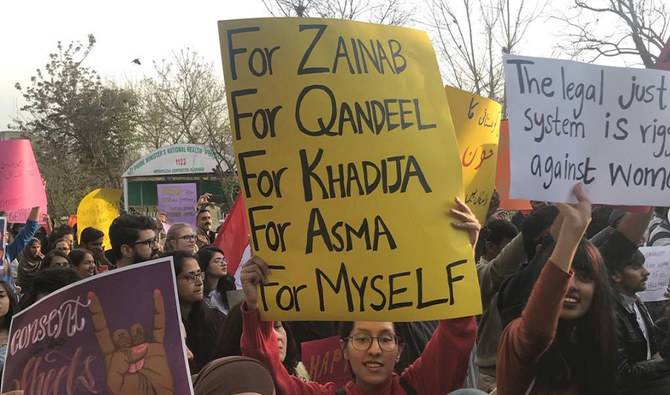
“Whatever women do, they must do twice as well as men to be thought half as good. Luckily, this is not difficult”—Charlotte Whitton
8 March is globally celebrated as International Women’s Day (IWD). The very fact that a day has been assigned to mark the existence of 49.6% of the world’s population shows how marginalized the fairer sex is. Interestingly, on 7 February 1992 International Men’s Day (IMD) was inaugurated by Thomas Oaster as a male counterpart to Women’s Day, but the date 19 November was eventually selected in 1999 for observing it.
Since its inception in early 1909, one can follow the trail of struggles that women have endured as they sought to demand a status equal to that of men. Simone de Beauvoir’s book Second Sex is evident of the inequality that twentieth century woman faced at the hands of a male dominated and chauvinistic society. Apparently, they were and still are agitating against the idea that why life with all its multi-dimensional aspects has to revolve around men, and why is it taken for granted that women exist only for the purpose of nurturing and entertaining men. Why are they deprived of all those activities falsely considered as male-specific? Why is it that they have to fight for their rights while men get it all so easily? These conflicts are still ongoing and have penetrated even in the eastern society that has its own set of grievances, at some variance from the West.
Another noteworthy aspect of International Men’s Day in response to International Women’s Day are the issues raised in their Six Pillar Objectives. These are,
To promote positive male role models: not just movie stars and sportsmen but everyday, working-class men who are living decent, honest lives. (Exactly what women are demanding—not be objectified.)
To celebrate men's positive contributions to society, community, family, marriage, child care, and the environment. (Women too want to be appreciated for their priceless contributions.)
To focus on men's health and wellbeing: social, emotional, physical, and spiritual. (Precisely what the female population is asking for.)
To highlight discrimination against men in areas of social services, social attitudes and expectations, and law. (Decades have elapsed with ladies clamouring for equal pay and striving to break glass ceilings.)
To improve gender relations and promote gender equality. (Wow! Look who’s talking.)
To create a safer, better world, where people can be safe and grow to reach their full potential. (What else are women demanding, so perhaps the word ‘people’ referred to is a mix of all sexes.)
The big question here is that who is denying the above-mentioned objectives to the male population? Are males demanding these from other males or are they expecting women to also canvass for their cause as well?
The true story is that the world is dominated by a few who exploit the remaining population to serve their own interests and safeguard their wealth. Undoubtedly, as claimed by the conveners of International Men’s Day, men too have been victimized, and have retaliated by targeting the most vulnerable among them – the women, thus taking their revenge. In this cat and mouse game, much has been lost, the potential of world progress suppressed due to suppression of talent and abilities just because these were in possession of females who never got the opportunity to display them. Of course, many men have suffered being marginalized by their own kind too.
Policies, laws and rules have mostly been conceived keeping men in mind, therefore until recently women were not allowed into police service or the Air Force in Pakistan and a few decades back, they were even discouraged from joining the diplomatic corps. Things have improved a lot since then because of persistence by females that eventually got them the chance to be part of these occupational groups. Needless to say, as yet, the participation of women in higher judiciary is close to nothing.
While significant blame for generally depriving females of their legal and human rights can easily be placed on men’s shoulders, it must be realized that even within women, there are marginalized groups whose lives are worse than those of their sisters belonging to privileged classes. Female members of the upper and powerful segments of society, by virtue of their positions may not have the same magnitude of problems or usurpation of rights as the middle class. After all, Britain was ruled by two powerful women, Queen Elizabeth I and Queen Victoria, when females did not have the same degree of political freedom as they do today. Here too, birth in a royal family was a significant matter while women from humble origins were not even literate.
For example, had Marie Curie been born in a rich family she may not have had to toil so hard against all odds in pursuing her education and in her discovery of radium at a time when there was a slight awakening in women regarding their basic rights.
On the occasion of International Women’s Day, we should resolve to not only uplift women, stand by such causes and contribute in our own special way, but also extend our whole-hearted support to all marginalized sections of society regardless of their gender—a thought ably expressed for the cause of women by Audre Lorde: “I write for those women who do not speak, for those who do not have a voice because they were so terrified, because we are taught to respect fear more than ourselves. We've been taught that silence would save us, but it won't” but here the word ‘women’ can be deleted to encompass all of humanity.

